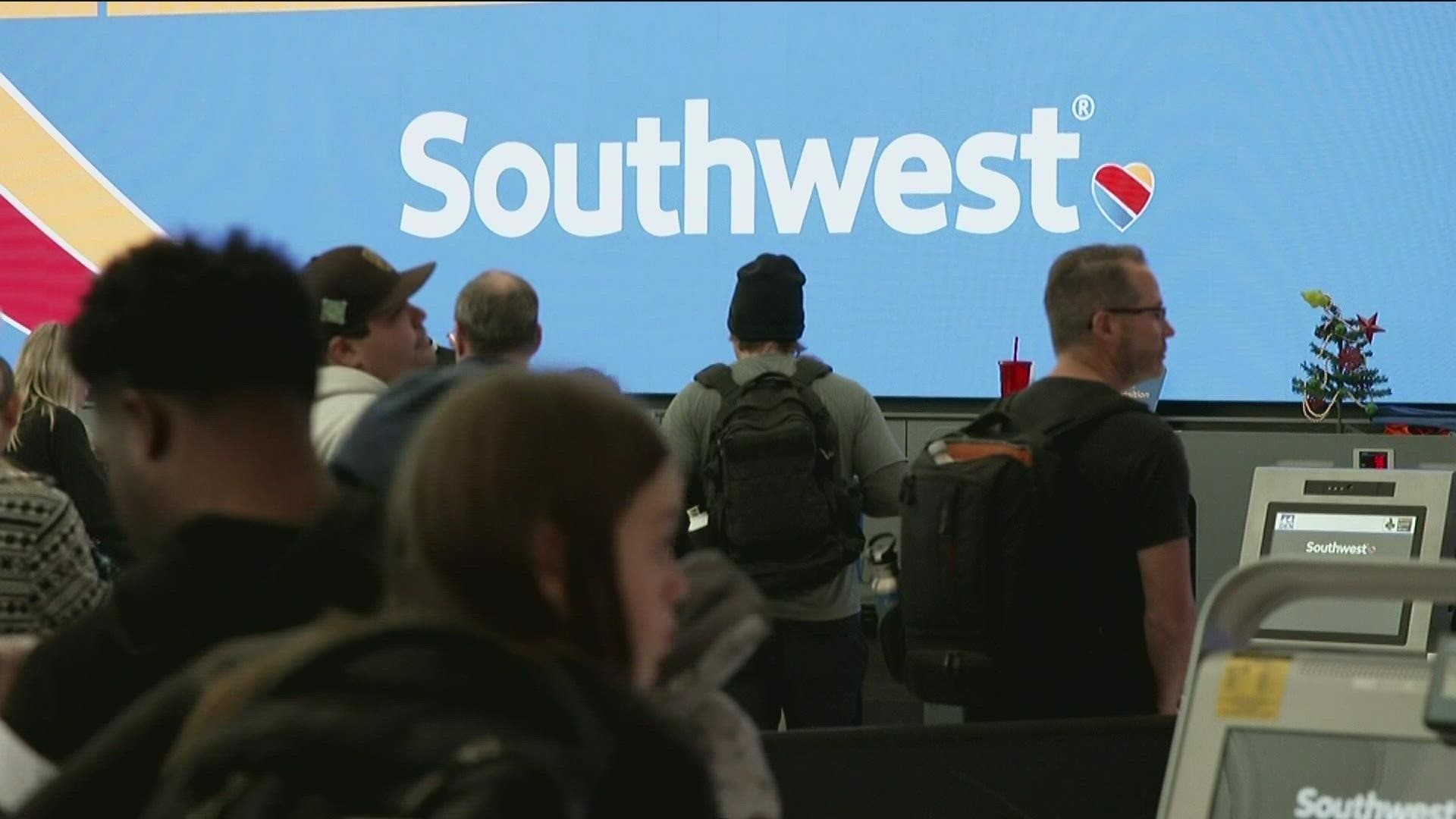DALLAS — After a winter debacle that left tens of thousands of passengers stranded in airports this past holiday season, Southwest Airlines has issued the reasons behind those massive delays and cancellations.
The Dallas-based airline conducted an internal review in March to determine what went wrong in the days after Christmas that led to thousands of flights being canceled and even a federal investigation.
Officials with Southwest released the key root causes in addition to an action plan going forward to ensure what happened doesn't take place again.
Causes for cancellations
- Winter operations: The airline began by saying they did not have sufficient weather equipment in certain airports following a severe winter storm in certain parts of the United States. Staffing problems forced crews needing to rotate out of the frigid weather, which led to the inability to keep the operations running at a normal pace to get flights off on time.
- Cancellation waves: Southwest officials stated that the volume of consecutive cancellations piled up leading to aircrafts and crews having to rely on "time-consuming manual processes," which couldn't keep up with scheduling issues across the board.
- Cross-team collaboration: Officials said that their communications became divided, which resulted in "gaps" in processes, that led to bottlenecks for their "important operational workgroups."
Action plan
- Improving winter operations: Southwest stated in a release they will be improving airport infrastructure, providing more winter equipment for times of need, and preparing a plan to better execute operations in severe winter weather.
- Accelerating operational investments: The airline stated its investments in new technology will "improve our recovery time during irregular operations."
- Enhancing cross-team collaboration: Officials said teams will have better communication to centralize and streamline their decision-making processes.
Some of the new equipment includes new deicing trucks, pads and ground equipment. Southwest will also be increasing the storage capacity of deicing fluid at airports with a higher level to be impacted by severe winter weather. They are also providing more engine covers and heaters in order to protect the aircraft and equipment on the ground in extreme low temps.
Southwest stated these implementations have already resulted in improved operations in 2023, resulting in currently being No. 2 in on-time performance year-to-date through March. They promised their customers they will get back to the quality they had delivered prior to the winter fiasco.
Those who want to read more about their initiatives can click here.

